
views
- Concentration checks measure a character’s ability to maintain their spell. Concentration may be broken when your character takes damage, dies, or is incapacitated.
- The DC (difficulty class) of a concentration check is either 10 or half of the total damage your character takes—whichever value is greater.
- Add 1d20 + your character’s Constitution saving throw modifier to calculate a concentration check. If you beat the check's DC, you maintain concentration.
What is concentration in D&D 5e?
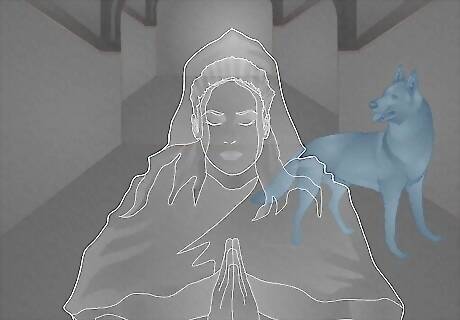
Concentration determines a spellcaster’s ability to maintain their spell. In D&D 5e, certain spells are marked “concentration” (or “C”). Concentration spells only last for the maximum duration possible (which is listed with the spell) if your spellcaster character can maintain concentration on the spell. Therefore, concentration is essentially a way to measure a spellcaster’s focus, particularly in battle. Not all spells are concentration spells. If a spell requires concentration, it’ll be listed next to the spell’s duration in the D&D rulebook. Popular concentration spells include Invisibility, Fly, Haste, Faerie Fire, Bless, Spirit Guardians, and Hypnotic Pattern. In the 3.5 edition of D&D, concentration was a skill you could make your PC (player character) learn. Then, in the 4th edition, it was absent entirely. As of 5th edition D&D, concentration is no longer a skill. Rather, it’s something that your character naturally does to the best of their ability whenever they cast a concentration spell.
How does concentration work?
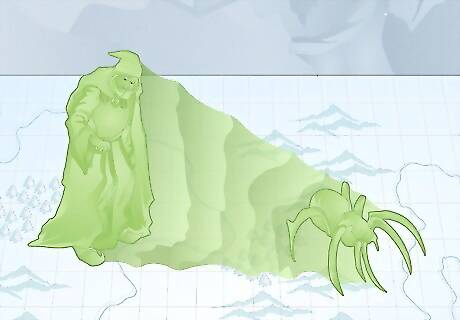
Characters must focus on concentration spells to keep them active. As long as your PC can hold concentration, their spell remains active. If your PC’s concentration is broken, the spell automatically ends (because their focus was interrupted). Alternatively, you can choose to end your PC’s concentration at any time and end the spell before it reaches its normal duration. For example, Polymorph is a concentration spell that allows you to transform any creature into a different creature of your choice. The Polymorph spell’s duration is 1 hour. So, if you want your target to remain polymorphed for a whole hour, your PC needs to concentrate on the spell for the entire time. If your PC loses concentration on their Polymorph spell before 1 hour is up, then the creature they transformed reverts back to its normal form. Remember: you aren’t allowed to hold concentration on two or more spells simultaneously, so casting another concentration spell automatically ends the first one.
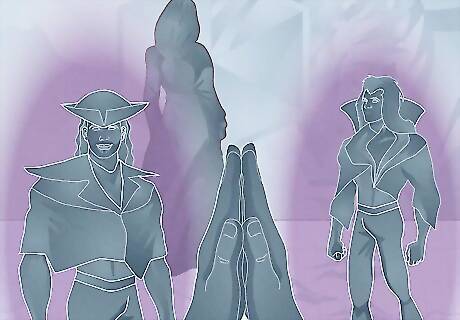
PCs must also concentrate on spells that take more than 1 action to cast. Many spells in D&D 5e can be cast instantly, but some have a longer casting time. When you cast a spell with a casting time longer than 1 action (for example, 1 minute, 10 minutes, 1 hour, and so on), your PC has to maintain concentration for that entire casting time. If anything interrupts their concentration, the spell is lost. For example, casting ritual spells takes at least 10 minutes. Say your character is casting Detect Magic as a ritual, meaning they need 10 minutes to cast it. If your character is attacked and loses concentration within that 10-minute casting time, Detect Magic will automatically fail. This also applies to the “Ready” action, which basically means your PC readies a spell, but doesn’t release it until a condition that you specify comes to pass. So, if your PC’s concentration is broken in between readying the spell and releasing it, the spell fails.
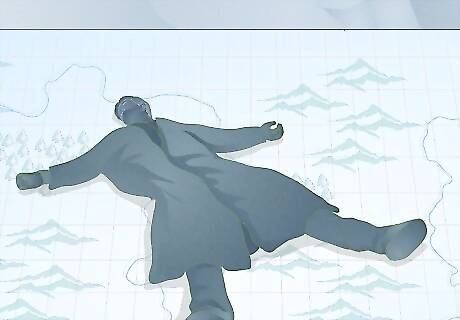
Taking damage and dying can both end concentration. Concentration can be broken in many ways in D&D 5e, although the most common way to do it is simply by taking damage. The worse your PC gets hurt in combat, the more likely they are to lose focus on their spell. If your PC falls unconscious (meaning they’re incapacitated) or dies outright, their spell automatically fails. Other ways to break concentration include: Stun effects. Any ability or creature that stuns or paralyzes your PC breaks their concentration immediately. Exhaustion. Exhaustion is a condition your PC may get when they’re very tired and not as capable as they are when fully rested. If your PC gains 3 levels of exhaustion, they have disadvantage on concentration checks. Disadvantage means rolling two d20 dice to make your concentration check and taking the lower of the rolls, making you less likely to succeed. Spells. Any spell that deals damage or directly forces your PC to make a concentration check (like Earthquake or Sleet Storm) may break their concentration. Environmental effects. Your DM (Dungeon Master) may rule that something in your PC’s environment is making it difficult for them to focus—like a turbulent storm, tidal wave, or something personal like your PC witnessing their worst fear. Mage Slayer feat. Mage Slayer is an optional feat that causes enemy spellcasters to have disadvantage on their concentration checks. So, if your PC goes up against a Mage Slayer, they might have trouble with concentration.
Making Concentration Checks
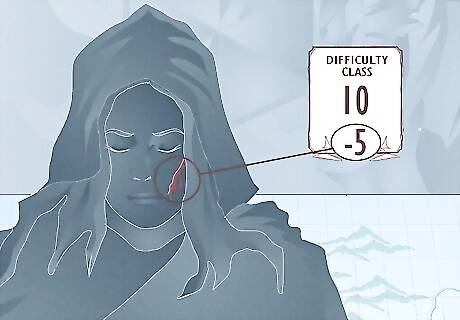
Do a concentration check if your PC takes damage while concentrating. If your PC gets hurt while concentrating, you must automatically make a concentration check (no matter how much damage they take). However, the amount of damage they take directly affects the difficulty of the concentration check. The base DC (difficulty class) of concentration checks is 10 or the equivalent of half the damage your PC takes—whichever is higher. For example, if your PC takes 5 points of damage, they need to make a concentration check with a DC of 10. However, if your PC takes 34 points of damage, they need to make a concentration check with a DC of 17 (since half of 34 is 17). Concentration checks are required every time your character takes damage, even in the same turn or round. So, if they get hit with 2 arrows from the same enemy, that means you’d need to roll 2 concentration checks.
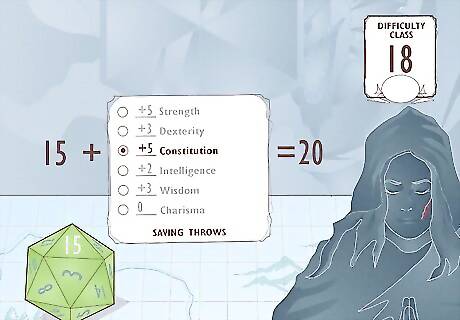
Calculate concentration with 1d20 + your CON saving throw modifier. Concentration checks are a type of Constitution saving throw. Therefore, the formula for making and calculating concentration checks is 1d20 + your Constitution saving throw modifier. When your DM asks for a “concentration check,” simply roll a d20 (20-sided dice) and add your Constitution (CON) save modifier to the result—which is listed on your PC’s character sheet. For example, say your PC needs to succeed on a DC 18 concentration check. If their CON save modifier is +5 and you roll a 15 on your d20 for a total score of 20, that means you’d succeed on the check and maintain concentration. Constitution is one of 6 ability scores that your PC has in D&D 5e (alongside Dexterity, Strength, Charisma, Intelligence, and Wisdom). It influences your character’s hardiness and endurance. CON saving throws measure your PC’s ability to withstand a dangerous effect—which is why concentration checks are really just CON saves.
What can improve concentration checks?
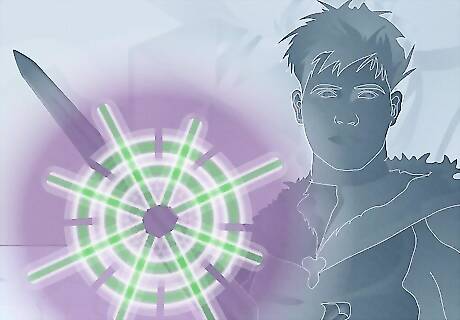
War Caster feat When you give your character the War Caster feat, you gain advantage on all concentration checks whenever your PC takes damage. This makes War Caster a useful feat for any spellcasting class—although it’s especially valuable if you decide to make a character that fights enemies up close (and is more likely to be attacked in return), such as an Eldritch Knight fighter or a paladin. Feats are optional abilities that you can choose for your character at certain points when they level up. They can do many things, from enhancing your PC’s ability scores to giving them additional spells or skill proficiencies. Having advantage on a skill check means you get to roll 2d20s and take the higher roll, increasing your chances of success.
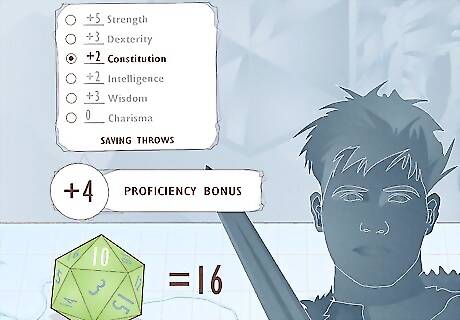
Resilient (Constitution) feat There are 6 variations of the Resilient feat (one for each of the 6 ability scores). When you give your character the Resilient (CON) feat specifically, they gain proficiency in all Constitution saving throws—which includes any concentration checks you might make as you play the game. Having “proficiency” in an ability simply means you can add your character’s proficiency bonus to checks related to that ability. So, if your PC is proficient in CON saves, that means the formula for concentration checks is 1d20 + their CON save modifier + their proficiency bonus. Say you roll a 10 for a concentration check, while your PC’s CON save modifier is +2 and their proficiency bonus is +4. That means the total concentration check would be 16 (10 + 2 + 4).
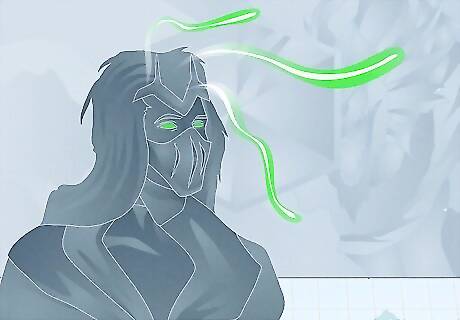
Class features Several character classes can give you either proficiency in CON saving throws, advantage in CON saving throws, or a bonus to your concentration checks specifically. If you want to play a spellcasting class, check their class feature list (as well as any features of the subclass you pick) to see if any features will enhance your concentration checks. For example: Eldritch Mind is an invocation available to warlocks granting them advantage on concentration checks. Zealous Presence is an ability available to Path of the Zealot barbarians, granting them a temporary advantage on CON saving throws. Living Legend is an ability for Oath of Glory paladins. When you use this ability, your PC can reroll their concentration check as a reaction. Tides of Chaos is an ability for Wild Magic sorcerers granting them advantage on their saving throws. Bardic Inspiration is an ability all bards get. When a bard grants Inspiration to your PC, you can add the Inspiration bonus to any check or saving throw—including concentration checks.











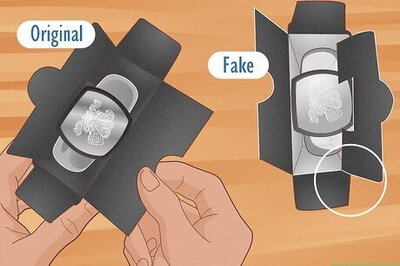






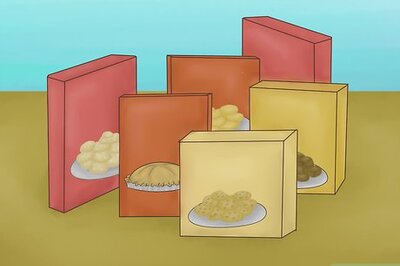
Comments
0 comment